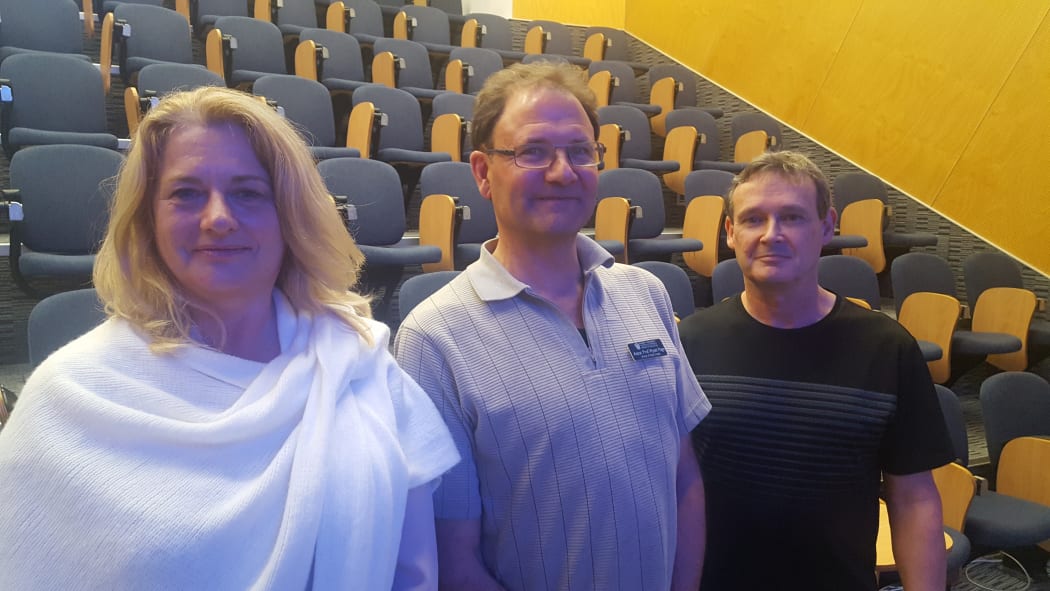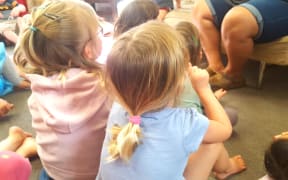The Education Ministry needs to raise minimum standards and protect under-five year olds from cold, crowded and noisy early childhood centres, a group of researchers say.

Minimum space requirements and temperature requirements for children in early childhood centres were inadequate, researchers said. Photo: RNZ Insight/John Gerritsen
They told a seminar at the University of Otago's Department of Public Health in Wellington that far from having world-leading regulations, some of New Zealand's minimum standards were the lowest they could find in the developed world.
University of Otago PhD student Mike Bedford said New Zealand's minimum space requirement of at least 2.5 square metres per child indoors and 5 square metres outdoors was among the worst in the OECD.
Mr Bedford said he had 35 years experience in public health and had made more than 1500 visits to early childhood centres and the minimum space requirements were inadequate.
"We've got to do much better than that. These standards are much lower, for example, than Australia where the equivalent standards are 3.3 square metres and 7 square metres per child indoors and outdoors. There's no reason why we should be operating at such a low standard in New Zealand - we actually have the space."
Mr Bedford said the rules allowed, for example, 30 children and five or six teachers to occupy a modest three-bedroom house, and 100 children could use half of a quarter acre section as their outdoor play area.

Early childhood teacher Susan Bates, Massey University associate professor Wyatt Page, and University of Otago PhD researcher Mike Bedford. Photo: RNZ / John Gerritsen
Mr Bedford said temperature requirements were also inadequate and the minimum, 16°C, was the lowest he could find among developed countries.
"I don't see any justification for a 16° temperature when it's 2° below WHO recommended minimum, the European parliament, every state that I looked in the United States that had minimum temperatures was higher than this, Australian states higher this," he said.
"Because of the association with low temperatures and infections, aside from the comfort issues, we need to deal with those low temperatures."
Mr Bedford said his research indicated many early childhood centres were below 16° during winter.
The standard should be raised and services needed more advice on how to ensure their premises were warmer, he said.
Massey University associate professor in acoustics and human development Wyatt Page said many early childhood centres were too noisy.
"When you went to a childhood centre now and you used the criteria 'could I hold a normal conversation' most people would say no they couldn't, they are demonstrably very loud. So I think if we applied that criteria now we would say there is a problem."
Mr Page said said excessive noise harmed children's development.
He said research conducted 12 years ago showed many children were exposed to excessive levels of sound, but nothing had been done since and the situation was likely to be worse because more children were in all-day care in modern buildings with hard surfaces that reflected noise.
"I would suspect that in most centres today, all-day centres, all children would in fact be exposed to excessive sound."
Centres could reduce noise with acoustic building materials and by lowering the number of children they enrolled, Mr Page said.
Early childhood teacher Susan Bates had been surveying teachers about their health and said improvements to minimum requirements for space and child numbers were desperately needed.
"I think it's gone past urgent," she said.
"There a lot of children who are really quite stressed."
Earlier this year, RNZ's Insight programme reported warnings from early childhood teachers and researchers that some centres were unsafe because they repeatedly ignored minimum staffing levels.
The Education Ministry's latest complaints summary, for 2016, showed it upheld a record 163 complaints against centres and 23 of the complaints resulted in centres losing their licence, while 24 resulted in the ministry placing centres on suspended or provisional licences.
The ministry's deputy secretary sector enablement and support, Katrina Casey, said the space requirement for early childhood centres was calculated by excluding the space occupied by fittings and fixed equipment, as well areas that were not available for play such as passage ways, toilets, and sleeping areas.
Services needed to ensure noise levels not unduly interfere with normal speech, or cause any child distress or harm.
She said the minimum temperature of 16° reflected the fact that children were allowed to move freely in and outdoors so in many cases doors might remain open.
"ECE premises are required to provide environments that facilitate stimulating, responsive, warm, and supportive interactions between staff and children.
"In particular, the design and layout of the premises must support different types of indoor and outdoor experiences, and include quiet spaces, areas for physically active play and space for a range of individual and group learning experiences appropriate for the number, ages and abilities of children attending," Ms Casey said.
She said the government was developing a 10-year strategic plan for early learning, which was aimed at raising quality.





